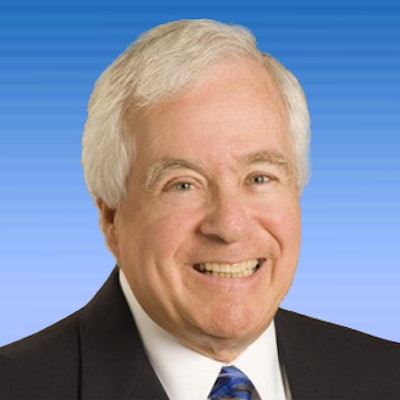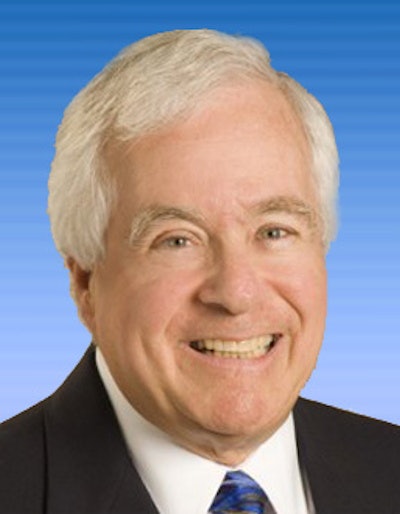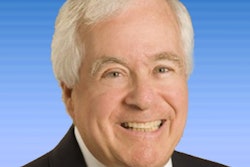
What a financial and emotional beating dental practices and their owners have taken during this pandemic. Patient revenue has dropped substantially. Employees have been laid off. Overhead expenses remained, as well as monthly obligations for equipment loans, rent, and other fixed overhead items, while the toll was being taken on the practices and owners' lives.
Many of those dentists who were readying their practices for transitions just before the virus struck were in a quandary about what their practices were worth. The practice evaluator that was retained and his or her preparation of the valuation report typically was effective as of December 31, 2019.
However, as the months progressed, more practices were losing large amounts of gross revenue. The dentists themselves were also experiencing drops in profits to the point of negative earnings at many of the practices. This caused personal financial difficulty as well, since the amount of the dentist's pay was decreasing, in many cases in ratios similar to the practice's losses.
To panic or not to panic? That is the question
Some of the dentists, including many of the older dentists, felt a panic set in where they thought this was the death knell for their practices and they had to take the best offer available.
 Bruce Bryen, CPA, CVA.
Bruce Bryen, CPA, CVA.Sound practice advisers (such as dental certified public accountants [CPAs], dental practice consultants, and other advisory service professionals) offered a slower pace to field and accept or reject offers. Taking whatever time was needed to secure the best transition approach possible was their quest for their client or advisee. Listening to the type of offer and knowing that some creativity was needed to close the transition during the pandemic helped more practices go to settlement and the dentist to achieve the dream of the practice sale.
An update in the valuation was necessary to achieve this. Almost all indicators in the transition value being offered by acquiring dentists were on the lower side of what the seller originally anticipated receiving. The fact that many of the offers did not include an all cash transfer was another indicator of the practice sale prices being offered during the pandemic. These offers were based on the buyers feeling that the sellers were panicking and that they could negotiate at fire sale prices.
The reputation of the dental practice evaluator became extremely important to all of the parties involved with the transaction. Being independent and presenting an accurate valuation that may have been unlike any previously seen with the full explanation of "why" was important to the seller and the buyer. Relying on data and an unsupported explanation about why the practice value should be higher or lower during COVID-19 would betray the credibility of the evaluator and the valuation. Offering valid explanations and support for those explanations (whether for the buyer or seller) would support the valuation in front of a court. The final test of value is the court if negotiations continue past the mediation stage. Being encouraged to use alternative facts won't win in the long term for the valuation's credibility.
The valuation presentation and terms of acquisition during COVID-19
As the dental practice valuations during the pandemic present lower or similar amounts of value compared to the last valuation report, it is very important to realize that the terms in the valuation are typically based on a 100% cash payment.
The new valuations being prepared during the COVID-19 pandemic may offer "earn outs," sellers holding part of the sale price in a promissory note from the buyer in a secondary position or other creative approaches to attaining the price being accepted by the seller from the buyer. The valuation may reveal a discounting method to provide what the report projects in terms of the present value of the dental practice if the payment is not by cash at or prior to closing, but some type of hybrid is the method to be used. If it is critical to the seller of the practice that the transition occur during the virus period, then that dentist must understand that the valuation being different than the past is the only way for the settlement to occur.
If it is to be accomplished, then a different outlook on the valuation determination must be accepted. If the value stays high, it is because of the past performance of the dentist and the potential for its repeat. It will also be because the seller is under no compulsion to sell as quickly as possible because he or she thinks that the market will return.
Being at the practice when that occurs will bring a significant increase in the value of the practice. Of course, if a buyer is willing to negotiate based on the probability of a semireturn to normalcy, then the price that is settled upon will be higher. The asset allocation at the transition table and the ability to assign as much as possible to the goodwill of the selling dentist is another area where the pricing and valuation will remain on the high side based on the evaluator's allocation to the goodwill in the current dental practice valuation.
The solo or limited number of professional dentists at the selling practice
As the number of owners is limited, the higher the value of personal goodwill will almost always become. This is because the patients have few or only one dentist to see at the practice and all of the referrals will go to him or her. This concept creates a much easier personal goodwill allocation.
The point of this is that a smaller practice with fewer dentists will probably suffer less and have a faster recovery once the pandemic subsides. This, of course, assumes that the dental practice manages to remain open while losing substantial amounts of money.
Having a current valuation to compare with the last valuation is important as it represents where the practice was and where it may return once things are normalized. Having sound dental practice advisers should help as well to reduce the panic and to make a more thoughtful decision about when to sell.
Bruce Bryen is a certified public accountant (CPA) and a certified valuation analyst (CVA) with more than 45 years of experience. Learn more about him and his services.
The comments and observations expressed herein do not necessarily reflect the opinions of DrBicuspid.com, nor should they be construed as an endorsement or admonishment of any particular idea, vendor, or organization.



















